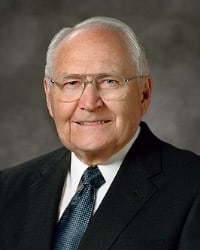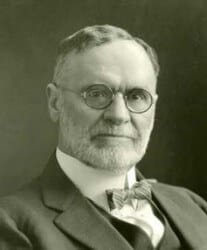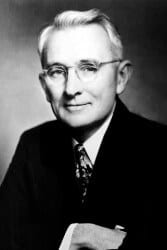
“While I believe that reverence is often exhibited through reverent behaviors, it is not behaviors that concern me now. I want to discuss reverence as an attitude of deepest respect and veneration toward Deity. Of course, reverent behaviors follow reverent attitudes, but it is the attitude of reverence that we need to cultivate first among our members. Reverent behaviors without reverent attitudes are empty of meaning because they are performed for the praises of men, not God.”
| "Serve God Acceptably with Reverence and Godly Fear," Ensign, Nov. 1990, 70






